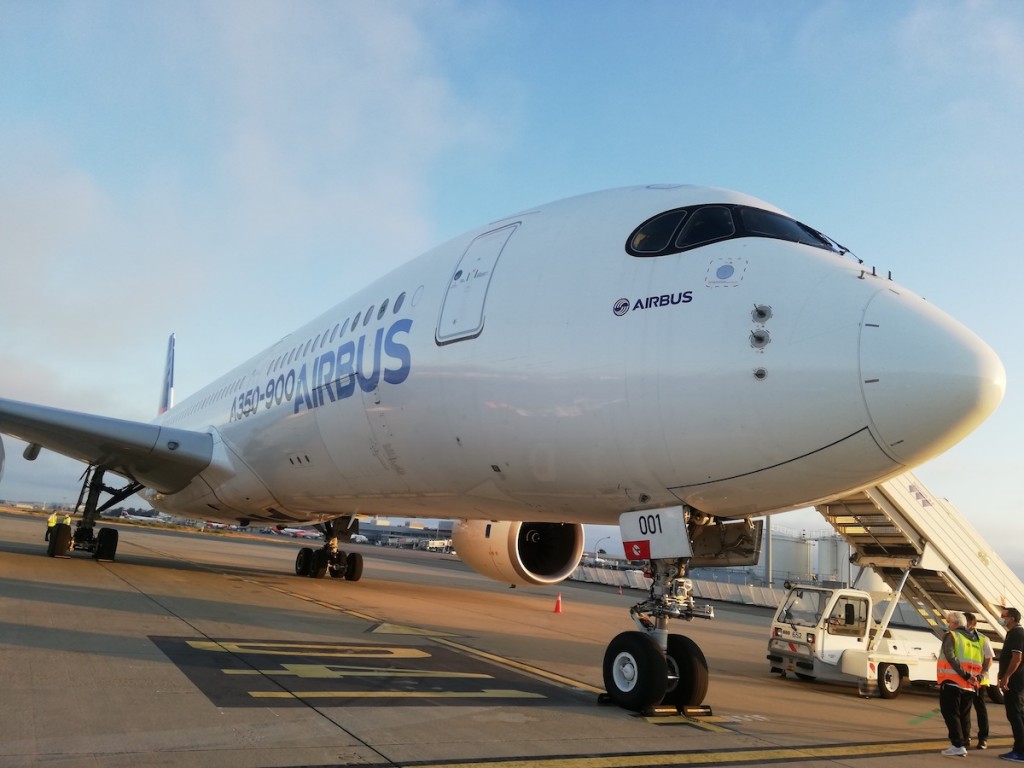Airbus SE’s dedicated freighter is drawing interest from major cargo firms, after the European planemaker got board approval to launch the jet late last month.
Airbus confirmed in late July its directors had signed off on a plan to produce a freighter version of the A350 jet by 2025, enabling it to counter rival Boeing Co.’s dominance of the market. The company is now authorized to make formal sales pitches to potential customers, with United Parcel Service Inc., DHL Worldwide Express and Qatar Airways gearing up for purchase decisions.
UPS Chief Financial Officer Brian Newman said July 27 that while the company’s existing order book is sufficient to meet requirements for the next three years, it is working on a review of longer-term needs. A spokesman for DHL said two days later the company is interested in both the A350F and Boeing’s 777X freighter, while Air France-KLM is looking at how to take advantage of a strong cargo market, potentially with an additional plane.

Demand for freighters has boomed during the pandemic, as stuck-at-home shoppers turned to e-commerce giants such as Amazon.com Inc. to buy goods. This exposed Airbus’s relatively weak market position when compared with Boeing, forcing a rethink from Chief Executive Officer Guillaume Faury.
While Boeing has freighter versions of its 777, 767 and outgoing 747 models, Airbus’s only foray into the market has been the failed cargo version of the smaller A330. The dedicated freighter market only accounts for about 80 plane sales a year, but would still be a good target for the European company, according to Agency Partners analyst Sash Tusa.
“If Airbus can get 10 A350 freighters a year at the moment, they’d be laughing,” he said. “Assuming they can develop the A350 at an acceptable price, that would be well worth doing.”
Old Planes
Airbus plans to keep widebody jet production rates low for the foreseeable future, currently building just five A350s a month as the airline industry struggles to recover from the ongoing coronavirus pandemic. Scooping up a share of the freighter market would help bolster the commercial jet program, with further cargo growth expected.
Israel Aerospace Industries, one of the world’s biggest conversion specialists, said this week that it had begun making modifications on its first passenger Boeing 777-300 jetliner, a process that will take about 130 days to repurpose it for freight.
Tusa said rules on emissions standards coming into force in 2028 will create further demand for new planes.
“There are a lot of freighters that were kept in service for longer than expected because of the pandemic but which are objectively old, tired and not very fuel efficient,” he said.
Strong Platform
According to Airbus’ Faury, the company’s new cargo jet will have 40% less fuel burn than four-engine freighters such as the Boeing 747 model. That should make it an attractive choice for customers, he said.
“It’s a very good case for us,” Faury said on a July 29 conference call. “We have a very strong A350 platform and bringing a freighter version makes a lot of sense.”

Follow us on social media: